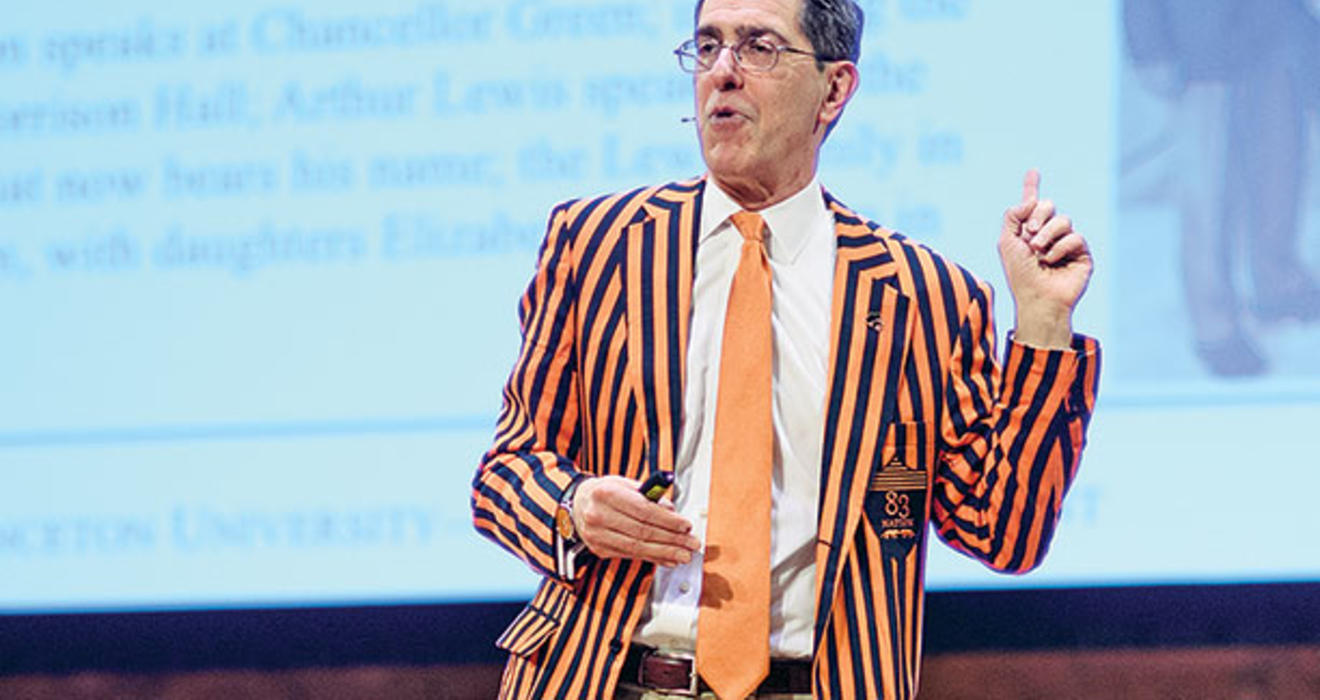
While Princeton remains committed to being “a great liberal-arts university in the 21st century,” President Eisgruber ’83 said during his annual Reunions conversation with alumni, technology is bringing important changes.
Computer science, machine learning, and artificial intelligence are revolutionizing our society, how students learn and what they want to study, and ways that research is conducted, Eisgruber said. He said he expects more faculty to use technology “to ask questions of a kind that couldn’t be formulated before, much less answered,” citing current University studies looking for clues to autism and the onset of Alzheimer’s disease.
But these new tools, he said, make the liberal arts more important, not less so. “We have to be thinking about what it means from the human perspective to have all of this powerful technology around us, how it’s transforming our society, and how we want to be able to use that technology,” he said.
Princeton should have a special impact on the world, he said, including a responsibility for service. “You get a place on this campus and get your life transformed in a way that so many other people would like to have an opportunity to do, you personally have a responsibility to think about how to give back to the world,” he said. Noting recently introduced programs for freshmen and sophomores, he said, “We want all our students thinking about their service initiatives.”
Eisgruber also stressed the importance of socioeconomic accessibility, expressing pride that this year’s graduating class is the most diverse in Princeton’s history. He said 83 percent of students graduate with no debt, and the average debt for those who borrow is lower than at any other national university.
An alumna questioned the “transparency” of the University’s figures on student debt, saying it took 15 years for her and her husband to pay off loans for their Princeton educations and she expected to be paying off loans for their son — also an alum — just as long. Eisgruber said the University is consistently ranked as the most affordable college in the United States and said Princeton’s figures accurately describe the “overall experience” of graduating students, but he said individual cases could tell “a different story.”






No responses yet